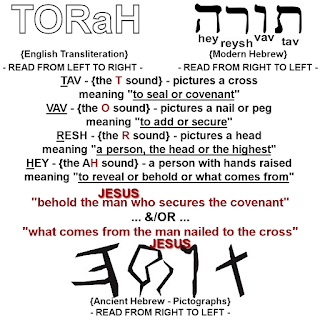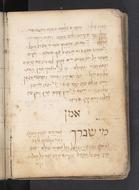Zulot Hebrew Meaning
- Zumot Hebrew Meaning In The Bible
- Zumot Hebrew Meaning Hebrew
- Zulot Hebrew Meaning
- Zumot Hebrew Meaning Synonyms
“Zealot” came to denote a member of a militant Jewish sect that was prominent in the first century C.E. And that fought against the Roman occupation of the Jewish homeland. Roman rule over Judea created deep religious and political tensions. This does not mean, of course, that vowels are not used in Hebrew. In fact, it is impossible to say anything at all without vowel sounds. But ancient Hebrew contained no written vowels as distinct letter forms: the actual vowel sounds were 'added' to the reading by means of oral tradition and long-established usage. ‘Zealot’ came to denote a member of a militant Jewish sect that was prominent in the first century C.E. And that fought against the Roman occupation of the Jewish homeland. As noted, the Hebrew letters themselves consist entirely of consonants. Additional symbols (placed below or on top of letters) make vowels, known as nekkudot (dots).These nekkudot make a string of letters into pronounceable and meaningful words. The names of vowels, below, indicate how the nekkudot are pronounced by Ashkenazim as well as by Modern Hebrew speakers, whose accent has. Meaning: The meaning of the name Zul is: Reliable. Please feel free to read what others say about this name and to share your comments if you have more information. Sometimes it happens that another name has the same meaning. There is nothing surprising in this: both names have the same origin or the same numbers of numerology.
also known as:whore, prostitute, camp follower, Cyprian, bawd
Greek: πόρναι or πόρνη —transliteration: pornai or porné
Meaning: “prostitute,” “harlot” —a woman or girl who sells her body for sexual uses / one who yields herself to defilement for the sake of gain / In the New Testament, any woman indulging in unlawful sexual intercourse, whether for gain or for lust
In the New Testament, this word occurs in various contexts.
Do you not know that your bodies are members of Christ? Shall I then take the members of Christ and make them members of a prostitute? Never!
Or do you not know that he who is joined to a prostitute becomes one body with her? For, as it is written,
“The two will become one flesh.” —1 Corinthians 6:15-16 ESV
Christ said to the chief priests and the elders of the people at the Temple,
“Truly, I say to you, the tax collectors and the prostitutes go into the kingdom of God before you. For John came to you in the way of righteousness, and you did not believe him, but the tax collectors and the prostitutes believed him. And even when you saw it, you did not afterward change your minds and believe him.” —Matthew 21:31-32 ESV
“…when this son of yours came, who has devoured your property with prostitutes, you killed the fattened calf for him!…” —Luke 15:30 ESV
“By faithRahab the prostitute did not perish with those who were disobedient…” —James 2:25
The word pornai is used symbolically in Revelation 17:1, 5, 15-16; 19:2—the Great Whore or Great Harlot.
Hebrew: זָנָה —transliteration: zanah or zonah
Meaning: to commit fornication; to be a prostitute
This is the word used in Genesis 34:31…
“…they said, “Should he treat our sister like a prostitute?” —ESV
“When Judah saw her, he thought she was a prostitute, for she had covered her face.” —Genesis 38:15 ESV
In the time of Solomon, harlots appeared openly in the streets, and he solemnly warns against association with them.
“For at the window of my house
I have looked out through my lattice,
and I have seen among the simple,
I have perceived among the youths,
a young man lacking sense,
passing along the street near her corner,
taking the road to her house
in the twilight, in the evening,
at the time of night and darkness.And behold, the woman meets him,
dressed as a prostitute, wily of heart.
She is loud and wayward;
her feet do not stay at home;
now in the street, now in the market,
and at every corner she lies in wait.She seizes him and kisses him,
and with bold face she says to him,
‘I had to offer sacrifices,
and today I have paid my vows;
so now I have come out to meet you,
to seek you eagerly, and I have found you.I have spread my couch with coverings,
colored linens from Egyptian linen;
I have perfumed my bed with myrrh,
aloes, and cinnamon.Come, let us take our fill of love till morning;
let us delight ourselves with love.
For my husband is not at home;
he has gone on a long journey;
he took a bag of money with him;
at full moon he will come home.’With much seductive speech she persuades him;
with her smooth talk she compels him.All at once he follows her,
as an ox goes to the slaughter,
or as a stag is caught fast
till an arrow pierces its liver;
as a bird rushes into a snare;
he does not know that it will cost him his life.” —Proverbs 7:6-23 ESVAlso see: Proverbs 9:14; Jeremiah 3:2; Ezek. 16:24-25, 31)
Hebrew: קְדֵשָׁה —transliteration: kedeshah or qedeshah
This word refers to a woman consecrated or devoted to prostitution in connection with the abominable worship of Asherah or Astarte, the Syrian Venus.
“And he asked the men of the place, ‘Where is the cult prostitute who was at Enaim at the roadside?’ And they said, ‘No cult prostitute has been here.’ So he returned to Judah and said, “I have not found her. Also, the men of the place said, ‘No cult prostitute has been here.’” —Genesis 38:21-22 ESV
This word is also used in Deuteronomy 23:17; Hos. 4:14. Thus Tamar sat by the wayside as a consecratedkedeshah.
Rahab
It has been attempted to show that Rahab, usually called a “harlot” (Joshua 2:1; 6:17; Hebrews 11:31; James 2:25), was only an innkeeper. This interpretation, however, cannot be maintained.
Idolatry
To commit fornication is metaphorically used for to practice idolatry (Jeremiah 3:1; Ezek. 16:15; Hosea throughout); hence Jerusalem is spoken of as a harlot (Isaiah 1:21).
Strange woman
Hebrew: נָכְרִי —transliteration: nokri or nokriyah
Meaning: foreign; alien
“strange woman” (1 Kings 11:1; Proverbs 5:20; 7:5; 23:27)
Those so designated were Canaanites and other Gentiles (Joshua 23:13). To the same class belonged the “foolish,” i.e., the sinful, “woman.”
Jephthah’s mother is called a “strange woman” (Judges 11:2). This, however, merely denotes that she was of foreign extraction.
Also see
- SEXUAL LUST—Why does God strongly warn us about it? Answer
- What is SEXUAL IMMORALITY? Answer
- PURITY—Should I save sex for marriage? Answer
- TEMPTATIONS—How can I deal with temptations? Answer
- CONSEQUENCES—What are the consequences of sexual immorality? Answer
- Learn how to make your love the best it can be. Discover biblical answers to questions about sex, marriage, sexual addictions, and more.
Level: Intermediate
- Most Hebrew words are derived from three-letter root words
The vast majority of words in the Hebrew language can be boiled down to a three-consonant root word that contains the essence of the word's meaning. Even if you cannot read Hebrew, you will find that you can get some insight into the meaning of the Bible by identifying the roots of words. If the same Hebrew root is used in two different places, the words and their meanings are probably related. If you see the same English word in two different places but the corresponding Hebrew words have different roots, this may indicate that there is a different shade of meaning that the English is not reflecting.
A substantial amount of rabbinicalinterpretation of the Bible is derived from the relation between root words. For example, the rabbis concluded that G-d created women with greater intuition and understanding than men, because man was 'formed' (yitzer, Gen. 2:7) while woman was 'built' (yiben, Gen. 2:22). The root of 'built,' Beit-Nun-Hei, is very similar to the word 'binah' (Beit-Yod-Nun-Hei), meaning understanding, insight or intuition.
Zumot Hebrew Meaning In The Bible

Similarly, a familiar Talmudicteaching notes the similarity of the words banayikh (your children) and bonayikh (your builders), and suggests that Isaiah 54:13 (and all your children/builders will be students of G-d, and great shall be the peace of your children/builders) indicates that those who study Torah are the builders of peace.
Hebrew words are formed from roots by changing vowels and by adding a wealth of prefixes and suffixes to that root. Prefixes can be prepositions (in, on, of, to, etc.), articles (the), or other things. Suffixes can be pronouns (he, you, our, etc.), possessives ('s), or can indicate gender and number (female singular; male plural, etc.). Because of the way these prefixes and suffixes are added to the root, a single word in Hebrew might be translated into English as several words.
For example, the first word of the Torah, 'bereishit,' is usually translated as 'in the beginning.' The root is Reish-Alef-Shin, which means 'head' or 'first.' (See Hebrew Alphabet to learn the letters). It is the same root as the 'Rosh' in 'Rosh Hashanah' (first of the year, i.e., Jewish New Year). We add the prefix Beit, a preposition meaning 'in,' 'on,' and a number of other things. The word 'the' is implied.

A more complicated example is the Hebrew word 'shehecheyanu,' the name of a popular prayer recited on holidays and at other times. The single word 'shehecheyanu' means 'who has kept us alive.' The root of this word is Cheit-Yod-Hei, a verb meaning 'to live.' It's the same root as the Hebrew word 'chai' (life or living) which you commonly see on Jewish jewelry, and the Jewish toast 'l'chayim!' (to life!) The Shin prefix turns the verb into a noun indicating a person who does the thing ('who'). The next letter is Hei, which normally turns a verb into a causative form ('has kept'). The Nun-Vav suffix is a first person plural pronoun ('us'). Thus, shehecheyanu means 'who has kept us alive.' Whew!
There are surprisingly few root words in biblical Hebrew, but we get a lot of mileage out of the ones we have. For example, from the root word Qof-Dalet-Shin, meaning 'holy,' 'sacred' or 'sanctified,' we get kedushah (holiness), kiddush (a prayer over wine sanctifying Shabbator a holiday), Kaddish (an important prayer commonly thought of as a mourning prayer), aron kodesh (holy cabinet - the place in synagogue where the Torah scrolls are kept), and kiddushin (betrothal).
Less obviously, from the root Samekh-Dalet-Reish, meaning 'order,' we get siddur (the daily prayer book, which sets for the order of prayers), seder(the Passover family ritual, which must be performed in a specified order) and sidrah (the weekly Torah reading, also called a parshah).

Here are some common prefixes and suffixes you will find on Hebrew words:
Zumot Hebrew Meaning Hebrew

| Prefix | Meaning | Comments and Examples |
|---|---|---|
| And, but | Vav used as a prefix can make the 'v' sound or the 'u' sound. When used with other prefixes, this is always the first prefix. V'ahavta (and you shall love); U'vayom (and on the day). | |
| In, on, with, by, etc. | Beit as a prefix sometimes makes the soft sound (v). Bereishit (in the beginning); u'vayom (and on the day). | |
| The | When Hei used with other prefixes, this is always the last prefix before the root. It is often absorbed into the Beit or Lamed prefix. Haolam (the universe); u'vayom (and on the day; note that the v' (on) combines with the ha (the) to become va (on the)). | |
| Like, as | Mi kamokha (who is like you?). | |
| To, for | L'chayim (to life). | |
| From; also turns a verb into a noun | Mimitzrayim (from Egypt); mitzvah (commandment, a noun derived from the root verb tzavah meaning command) | |
| Turns a verb into the person who does it | Shehecheyanu (who has kept us alive); sheasah (who performed) |
| Suffix | Meaning | Comments and Examples |
|---|---|---|
| Masculine plural | Yamim (days). | |
| Feminine plural | Mitzvot (commandments). | |
| You, your | B'khol l'vavikha uv'khol naf'shikha uv'khol m'odekha (with all your heart and with all your soul and with all your means). | |
| We, us, our | Avinu malkeynu (our Father, our King); asher kidishanu (who has sanctified us); ashamnu (we have been guilty). |
Zulot Hebrew Meaning
© Copyright 5756-5780 (1995-2020), Tracey R Rich
If you appreciate the many years of work I have put into this site, show your appreciation by linking to this page, not copying it to your site.I can't correct my mistakes or add new material if it's on your site. Click Here for more details.
Zumot Hebrew Meaning Synonyms
What's Nu? Current Calendar About